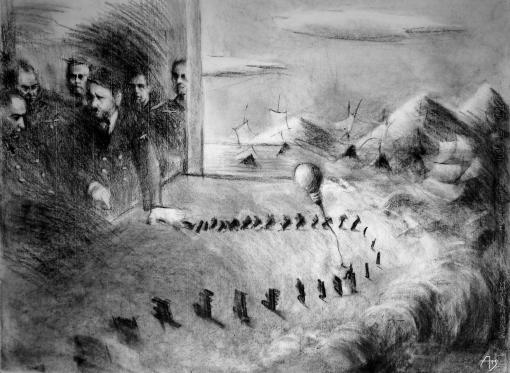Dear economists, dear policy makers, dear bankers, dear powers-that-be,
I have a message for you. It is aimed at you, but not really meant for you, rather for the rest of us who are struggling to make sense of this mess you have created.
We are not commodities.
We, the People, vote and elect individuals who are supposed to represent our interests and uphold our ideals for a fair and humane society. Just one glimpse at the news, especially the uncensored/non-sterilized news reports on the Internet, should be enough to convince anyone that we have strayed very, very far from this basic concept of Democracy.
Commodities do not vote. Commodities have no rights or voice. Commodities are bought, sold and utilised as required.
The very moment that our financial system started treating people as commodities, was the moment when democracy started to decline. And now that this very system has come to dominate politics and governance to an absolute degree, what do you suppose has happened to our precious democracy?
Commodification is nothing new. In fact, it is a fairly old concept introduced by Karl Marx. The problem is that many people will dismiss the concept without thinking, just because they might disagree with Marxist theories.
But you don’t need to be a Marxist or a communist, or even a left-wing sympathiser to understand the fundamental truth of this simple statement: people are not commodities.
No amount of reasoning, no financial theory, no argument can be used to change this. In a world which has formally renounced slavery, human labour cannot be thought of as a commodity.
Because when this happens, then the fundamental right to work becomes subject to the principles of the free market and unemployment is suddenly thought of as a financial indicator, instead of a social problem. Even worse, unemployment becomes a useful tool that can be used to force salary costs to lower and work rights to disappear.
It’s all in the name of “rationalisation”, of course. It is “good business”. “Rationalisation” is a very interesting word, used in business circles (and more recently in politics) as a euphemism for salary and job cuts. In psychology, however, it is used to describe a defence mechanism in which perceived controversial behaviours are logically justified.
Or, simply put, “making excuses”.
But we are not commodities and there is no excuse for treating us as such. No one cares what lumber thinks. What matters is that you get the best quality at the lowest price. Iron ore does not need to start a family. All it needs to do is to be good and cheap enough to be used for production.
When you drive the need to optimize production to the extreme, there would be nothing better than a worker that costs nothing, demands nothing and never stops. In other words, a robot. But robots are still pretty expensive to acquire and maintain. Humans remain a better choice for all but the heaviest and most repetitive tasks.
We are now treading on very dangerous ground. A society which places business concerns and interests over that of its own members will naturally push them to become as robot-like as possible. Is this the kind of society that we want?
Is this the crowning achievement of our technological and cultural evolution? Filling up factories and office buildings with human drones and streets with masses of starving, unemployed people?
Somehow, I do not think this is the bright future which we were promised. Somehow, I don’t think that all those billions of people living in democratic countries are voting to become slaves or beggars.
Or things to be exchanged.
Intermission #18


